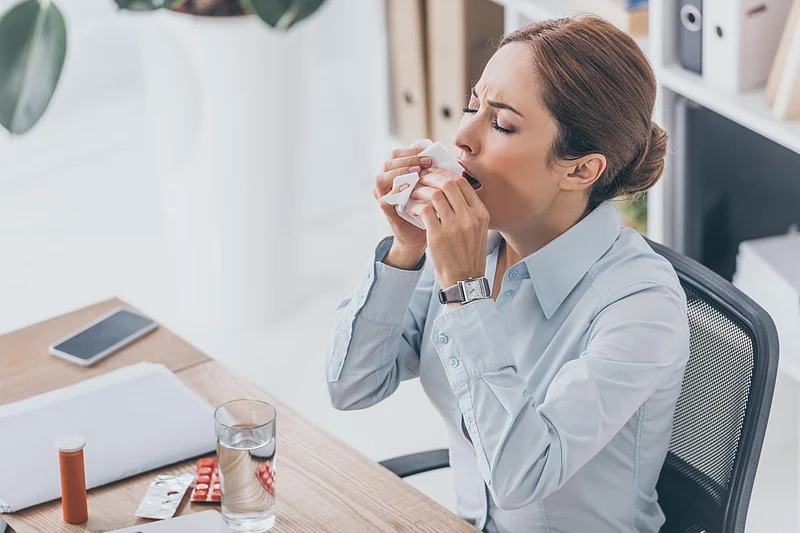Manténgase sano!

- Cara Murez
- Posted October 1, 2022
Get Ready for Those Fall Allergies
Allergy sufferers know that symptoms don't just appear in spring or summer. Fall, too, can bring about sneezing and trouble breathing, as can volatile weather patterns.
"People frequently experience allergy symptoms in the fall even if they are mainly allergic to pollens in the spring and summer,"said Dr. David Corry. He is a professor of medicine in the section of immunology, allergy and rheumatology at Baylor College of Medicine in Houston.
Among the natural events that could affect allergy sufferers this year are the Tonga Volcano eruption in January, Corry said. That sent particulates and aerosols into the environment and could change global weather, shortening or lengthening upcoming pollen seasons.
Those seasons could further change in the northern hemisphere, which was both hotter and drier this year, Corry said.
"We're currently in peak ragweed season and we're also seeing a lot of mold spores in the air,"Corry said in a college news release. "But these unusually high temperatures earlier this year could mean potentially less cedar pollen this winter."
Hurricane season is underway and these wet events, along with tropical storms, can produce immense rain and destroy vegetation. This can lead to fungal "blooms"and increase fungal spores in the air, which substantially worsen allergy and asthma symptoms for weeks or even months.
Cold fronts that bring thunderstorms and wind can stir up ragweed and pollens from earlier seasons. These can travel long distances.
"Thunderstorm asthma" is a phenomenon that can affect those who have asthma.
"If you are mold-allergic or you have mold-related asthma, those can get dramatically worse very quickly and that is a real threat to health,"Corry said. "Remain indoors shortly after thunderstorms, and if your house has been flooded, or has water damage of any kind, repair it immediately to avoid mold growth."
People who live with allergies would do best to keep them outside of the home.
Showering after having been outdoors can help wash small particles from hair and skin. You should also wash clothes worn outside.
Depending on allergy severity, Corry suggested a variety of treatments.
Mild to moderate symptoms can be treated with over-the-counter non-drowsy antihistamines, like cetirizine (Zyrtec), loratadine (Claritin) or fexofenadine (Allegra). These can be used in combination with nasal steroids.
Nose rinses drain nasal passageways with a saline solution. See your physician for prescribed inhaled steroids or other types of medication to treat symptoms if over-the-counter solutions are not enough.
Allergen immunotherapy, in which patients receive weekly injections of low-dose allergens they're sensitive to, can help build an immune response to the allergen, Corry advised.
More information
The U.S. National Center for Complementary and Integrative Health has more on seasonal allergies.
SOURCE: Baylor College of Medicine, news release, Sept. 27, 2022







